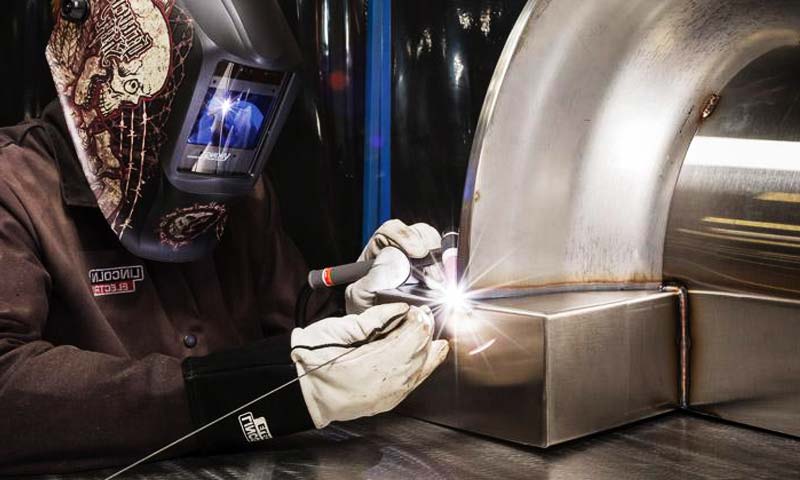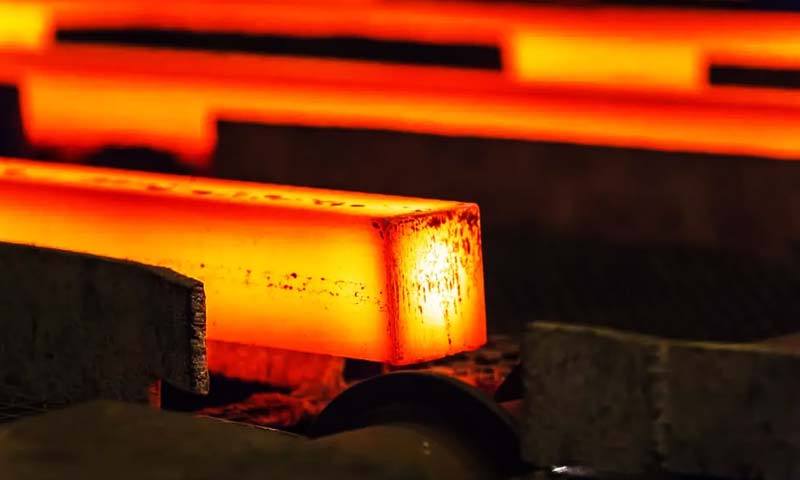Heavy equipment castings are structural and functional components produced by pouring molten metal into molds to create parts that combine complex geometries, hög mekanisk styrka, and cost-effective production at scale.
They are indispensable in industries such as construction, brytning, lantbruk, rail, marine and energy.
Proper material selection, gjutningsprocess, thermal and mechanical post-processing, and rigorous quality control determine service life and lifecycle cost.
1. What are Heavy Equipment Castings
Heavy-equipment castings are near-net-shape metallic components produced by casting processes (TILL EXEMPEL., sandgjutning, gjutning av förlorade skum, investeringsgjutning, centrifugalgjutning) intended for structural or functional load-bearing service in mobile or stationary heavy machinery.

Distinctive characteristics
- Storlek & skala. Masses typically range from tens of kilograms (TILL EXEMPEL., compact gearbox housings ≈ 50 kg) up to many tonnes (large mining truck frames and mill housings — tens to hundreds of tonnes).
Linear dimensions commonly exceed several metres for large assemblies. - Load-bearing function. These parts transmit static and dynamic loads (böjning, torsion, axial forces and impact) and therefore require a controlled combination of strength, toughness and stiffness.
Typical components include booms, ramar, inhus, couplers and hubs. - Environmental resilience. Designed for exposure to dust, fukt, frätande kemikalier (gödningsmedel, salter),
abrasives and broad temperature ranges (example service window: −40 °C to +150 ° C; extremes may require specialized alloys or surface protection). - Design trade-off — cost vs durability. Castings often cost more to produce per part than simple fabricated weldments but provide integrated geometry,
fewer assemblies and elimination of weld crotches (common crack initiation sites), resulting in longer field life and lower total cost of ownership for many heavy-duty applications.
Representative performance targets (typisk, by application)
- Dragstyrka (Rm): structural cast components: ≥ 400 MPA (common for ductile iron, medium-strength cast steels);
högspänningskomponenter (crane hooks, lifting eyes): up to 700–900 MPa for quenched & tempered alloy steels. - Påverka seghet (Charpy v): specificera absolute energy at temperature, TILL EXEMPEL., ≥ 20 J at −20 °C (quoted as “CVN ≥ 20 J @ −20 °C”), with acceptance according to ASTM E23 / Iso 148.
- Slitbidrag: define either hardness or standardized wear test; TILL EXEMPEL., Brinell hardness HB ≥ 200 for abrasion-resistant components, or specify ASTM G65 sand-rubber wheel mass loss limits.
- Dimensionell stabilitet / toleranser: large structural castings typically accept ±1–3 mm per metre depending on feature criticality;
specify tighter tolerances (TILL EXEMPEL., ± 0,1–0,5 mm) only for precision mounting surfaces after finish machining.
2. Marknadsföra & Application of Heavy Equipment Castings
Heavy equipment castings serve diverse heavy-duty applications:

- Konstruktion & jordflyttning: hinkar, bommar, kopplingar, pin housings.
- Brytning: krosskäftar, grinding media, mill housings.
- Lantbruk: plogdelar, redskap, tractor components.
- Järnväg & transport: kopplingar, bromskomponenter, lastbilsramar.
- Marin & havs-: propellernav, pumphöljen, roderlager.
- Kraftproduktion & olja & gas: turbinhus, ventilkroppar, pumphöljen.
Each sector imposes distinct requirements: wear resistance and impact toughness in mining; corrosion resistance in marine; fatigue endurance in rail; and tight tolerances and smooth finishes in hydraulic and rotating equipment.
3. Common Materials Selection — Heavy-Equipment Castings
Cast Irons
- Grått gjutjärn (GI)
-
- Why used: Utmärkt dämpning, good compressive strength, låg kostnad, easy to cast for large complex shapes.
- Typiska användningar: Maskinbaser, inhus, non-structural covers.
- Egenskaper: Måttlig draghållfasthet, bra bearbetbarhet, poor ductility/toughness.
- Ductile/Nodular Cast Iron (Sg / Duktil järn, ASTM A536)
-
- Why used: Combination of strength and toughness with lower cost than steel; graphite spheroids give ductility.
- Typiska användningar: Kopplingar, certain structural castings, växlar, mid-duty components.
- Egenskaper: Bra trötthetsmotstånd, weldable with caution, responds to austempering (Adi) for higher performance.
- Komprimerad grafitjärn (Cgi)
-
- Why used: Between gray and ductile iron—better strength and fatigue than GI, better thermal conductivity than ductile iron.
- Typiska användningar: Motorblock, medium-stress structural parts where vibration damping plus strength are needed.
- Vitt järn & Alloyed White Iron
-
- Why used: Extremt hårt och slitstoppande (often surface hardened by heat treatment), brittle unless alloyed/treated.
- Typiska användningar: Kvarnfoder, krosskäftar, high-abrasion inserts (can be cast as replaceable wear parts).
Cast Steels
- Kol & Low-Alloy Cast Steels (TILL EXEMPEL., ASTM A216 WCB, A350 L0 etc.)
-
- Why used: Higher tensile strength and toughness than irons; better impact and fatigue behavior; weldable and repairable.
- Typiska användningar: Strukturell, tryckhus, crane hooks, highly loaded frames.
- Alloy Cast Steels (Cr-mo, In-cr-i, etc.)
-
- Why used: Tailored for high strength, elevated temperature, wear or impact resistance. Heat treatable to high strength/toughness combinations.
- Typiska användningar: Släckt & tempered components in high-stress applications.
Speciallegeringar & Rostfri
- Austenitic and Ferritic Stainless Castings (CF8/CF8M, ASTM A351 / A743)
-
- Why used: Korrosionsmotstånd (havsvatten, kemisk exponering), bra duktilitet.
- Typiska användningar: Pumphus, marina delar, corrosive environment structural pieces.
- Duplex & Superduplex (TILL EXEMPEL., 2205, 2507 ekvivalenter)
-
- Why used: Higher strength than austenitic stainless and superior resistance to chloride stress-corrosion cracking; used when corrosion + strength are required.
- Typiska användningar: Seawater equipment, offshorekomponenter.

- High-nickel & värmebeständiga legeringar (Hastelloy, Ocny, Legering 20, etc.)
-
- Why used: Exceptional corrosion or high-temperature resistance; expensive—used only where necessary.
- Typiska användningar: Kemisk bearbetning, severe corrosive environments, high-temperature housings.
Engineered & Composite Approaches
- Austempered duktil järn (Adi) - duktil järn processed to bainitic matrix (högre styrka + slitbidrag).
- White-iron overlays, hårddisk, ceramic/metallic linings — used to give wear zones very high abrasion resistance while keeping the bulk casting tougher and cheaper.
- Functionally graded or bimetal castings — combine tough base metal with hard surface alloys or replaceable wear inserts.
Typical mechanical property ranges — illustrative table
Values are indicative. Final design must use certified MTR/test data and supplier-specific heat-treatment results.
| Material Family | Typical Tensile Rm (MPA) | Förlängning (%) | Typisk hårdhet (Hb) | Typisk användning |
| Grått gjutjärn (ASTM A48) | 150–350 | 0.5–2 | 120–260 | Inhus, baser |
| Duktil järn (ASTM A536) | 400–700 | 2–18 | 140–260 | Structural/medium duty parts |
| Austempered duktil järn (Adi) | 700–1 100 | 2–6 | 200–350 | Högstyrka + bära delar |
| Komprimerad grafitjärn (Cgi) | 350–600 | 1–8 | 160–280 | Motorblock, strukturell |
| White/Alloy White Iron | 300–900 (spröd) | <1 | 400–700+ | Abrasive liners, jaws |
| Carbon/Low Alloy Cast Steel | 400–800 | 8–20 | 150–320 | Strukturell, tryckdelar |
| Släckt & Tempered Alloy Steel | 700–1,300 | 8–18 | 250–450 | High-stress hooks, axlar |
| Austenitic Stainless Cast (CF8/CF8M) | 450–700 | 20–45 | 120–250 | Corrosion environments |
| Duplex/Super-Duplex | 600–1 000 | 10–25 | 200–350 | Havsvatten, havs- |
4. Gjutprocesser & Teknik
Selecting the right casting process is among the earliest and most consequential choices in producing heavy-equipment components.
The choice determines achievable geometry, metallurgical quality, ytfin, dimensionell tolerans, tooling cost and lead time — and it strongly influences downstream needs for heat treatment, machining and NDT.
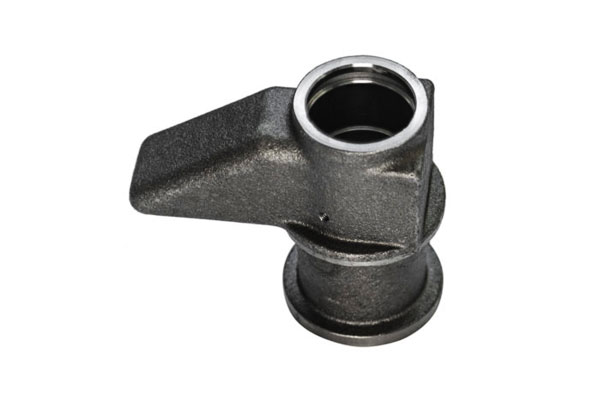
key process drivers
When choosing a casting route, weigh these primary drivers:
- Part size and weight (kg → tonnes), and whether one piece is required or several assemblies.
- Geometri komplexitet (underskott, thin webs, interna hålrum).
- Material family (ferrous vs non-ferrous; rostfri, duplex-, Ni-alloys).
- Required mechanical properties (seghet, trötthet, wear zones).
- Dimensionell tolerans & ytfin (as-cast vs finish-machined faces).
- Production volume & enhetskostnad (tooling amortization).
- Inspection and metallurgical cleanliness needs (critical fatigue or pressure zones).
- Miljö, energy and safety constraints (utsläpp, sandåtervinning).
Green-sand (conventional sand) gjutning
- Hur det fungerar: Patterns press into sand molds bound with clay/organic binders; cores form internal cavities.
- Materiel: Wide range — gray iron, duktil järn, stål.
- Styrkor: Lowest tooling cost, flexible for very large parts, easy to modify patterns. Ideal for single pieces and low-to-medium volumes.
- Begränsningar: Grovare ytfinish, larger tolerances, higher porosity risk if gating/riser not optimized.
- Typical scales & metrics: part weights from <10 kg till 100+ massor; surface finish ~Ra 6–20 µm (ca); dimensionell tolerans: ±1–5 mm/m (application dependent).
- Ansökningar: Stora hus, mill bases, lastbilsramar, very large pump casings.
Skalformning (hartsbelagd sand) gjutning
- Hur det fungerar: Resin-coated sand shells formed on heated patterns; two halves assembled with cores as needed.
- Materiel: Iron and some steels; increasingly used with ductile irons and certain steels.
- Styrkor: Better dimensional accuracy and finer surface finish than green sand; thinner sections possible. Good for medium volumes.
- Begränsningar: Higher tooling cost than green sand; lower maximum size than green sand.
- Typical scales & metrics: part weights up to a few tonnes; surface finish ~Ra 1–6 µm; toleranser ±0.3–2 mm/m.
- Ansökningar: Redskap, medium structural castings, parts needing improved finish.
Investeringsgjutning (förlorad wax)
- Hur det fungerar: Wax pattern(s) assembled into tree, ceramic shell built around pattern, wax removed, ceramic shell fired and filled with molten metal.
- Materiel: Feasible for steels and stainless; widely used for non-ferrous (I, Cu, Al); larger castings possible with special setups.
- Styrkor: Excellent detail, Fin ytbehandling, tunna sektioner, nästan nätform. Low machining.
- Begränsningar: High tooling and process cost; traditionally for small-to-medium parts, though large investeringsgjutningar are possible with special equipment.
- Typical scales & metrics: weights from a few grams to a few tonnes; surface finish ~Ra 0.4–1.6 µm; toleranser ±0.05–0.5 mm.
- Ansökningar: Precisionshus, complex stainless parts, components where tight geometry and finish reduce machining.
Gjutning av förlorade skum
- Hur det fungerar: EPS foam pattern placed in unbonded sand; molten metal vaporizes foam, filling the cavity.
- Materiel: Ferrous and non-ferrous; attractive for near-net shape ferrous parts.
- Styrkor: Eliminates cores for complex internal geometry; lower tooling cost vs. investering; good for complex large castings.
- Begränsningar: Process control needed to prevent gas defects; surface finish and tolerance depend on sand compaction.
- Typical scales & metrics: medium-to-large parts (tens to thousands kg); surface finish similar to sand casting ~Ra 2–10 µm; toleranser ±0.5–2 mm/m.
- Ansökningar: Komplexa hus, pump casings with internal passages, automotive and equipment components where cores would be difficult.
Centrifugalgjutning
- Hur det fungerar: Molten metal poured into a rotating mold; centrifugal force distributes metal and minimizes gas/slag entrapment.
- Materiel: Brett räckvidd; commonly used for irons, stål, brons.
- Styrkor: Tät, sound castings with good mechanical properties axially (excellent for rings, bussningar, ärm). Low inclusion/porosity.
- Begränsningar: Geometry limited to round/axisymmetric parts; tooling specialized.
- Typical scales & metrics: ringar & cylinders from small diameters to multiple metres; excellent internal soundness; toleranser ±0.1–1 mm depending on finish.
- Ansökningar: Cylindrical components: bearing sleeves, bussningar, rör, large rings and cylindrical housings.
Permanent-mögel & pressgjutning (mostly non-ferrous)
- Hur det fungerar: Molten metal poured or injected into reusable metal molds (permanenta formar) or high-pressure die casting.
- Materiel: Mostly non-ferrous (Al, Cu -legeringar); some low-pressure permanent molds for certain steels/bronzes.
- Styrkor: Utmärkt ytfinish, snäva toleranser, fast cycle times for high volumes.
- Begränsningar: Hög verktygskostnad, not typical for very large ferrous heavy-equipment parts.
- Typical scales & metrics: små till medelstora delar; surface finish Ra 0.4–1.6 µm; toleranser ±0.05–0.5 mm.
- Ansökningar: Non-structural housings, components where weight reduction via aluminium is desired.
Stillastående (upstream feed)
- Hur det fungerar: Produces billets/slabs for downstream forging/machining; not a finishing process for actual heavy components but relevant to material supply.
- Relevans: Quality of upstream feedstocks affects inclusion content and alloy homogeneity for downstream foundries.
5. Värmebehandling & Thermal Processing
Värmebehandling is the primary lever foundries and heat-treat shops use to convert as-cast microstructures into the combinations of styrka, seghet, wear resistance and dimensional stability required by heavy-equipment castings.
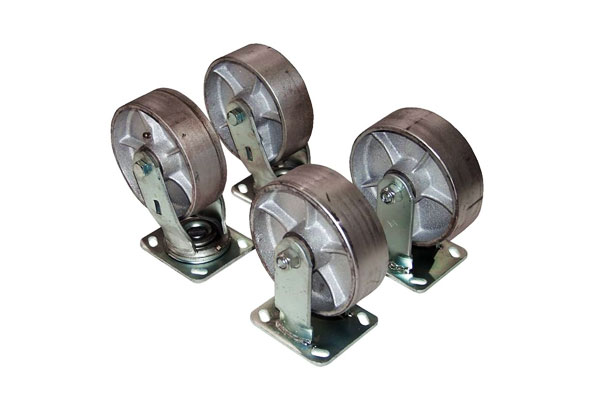
Common heat-treatment processes and when to use them
Temperatures and times below are typical engineering ranges. Final cycles must be validated for the specific alloy, section size and part geometry and recorded in the supplier’s process sheet.
Avspänningsglödgning (stressavlängning)
- Ändamål: Reduce residual stresses from solidification, rough machining or welding.
- Typisk cykel: Värma efter ~500–700 °C, hold to equalize (time depends on section thickness), långsam kyla.
- När du används: Standard after heavy rough machining or multi-pass welding; before finish machining for dimensional stability.
- Effekt: Lowers yield of distortion without major microstructure change.
Normalisering
- Ändamål: Refine coarse as-cast grain and homogenize the matrix to improve toughness and prepare for subsequent tempering/quench.
- Typisk cykel: Värma efter ~850–980 °C (above austenitizing for steels), air-cool to refine grain.
- När du används: Cast steels prior to quench & humör, or when cast microstructure is coarse.
- Effekt: Produces finer, more uniform ferrite/pearlite microstructure and dimensional stabilization.
Släcka & humör (Q&T)
- Ändamål: Produce high strength plus toughness for high-stress or fatigue-critical components.
- Typisk cykel: Austenitize ~840–950 °C depending on alloy → quench (oil/water/polymer or gas) → temper ~450–650 °C to achieve required toughness/hardness.
- När du används: Krankrokar, high-stress frames, safety-critical forged/cast steels requiring Rm >> 600 MPA.
- Critical controls: Quench severity and part fixturing to avoid cracking/distortion; tempering schedule tailored to balance hardness vs toughness.
Östlig härdning (for ADI — Austempered Ductile Iron)
- Ändamål: Produce ausferritic matrix (bainitisk ferrit + stabilized carbon in austenite) för hög styrka + good ductility/wear resistance.
- Typisk cykel: Austenitize (TILL EXEMPEL., ~900–950 °C) → quench to austempering bath at 250–400 °C and hold until transformation completed → cool.
- När du används: Wear components requiring a combination of toughness and wear resistance (TILL EXEMPEL., impeller, some wear rails).
- Effekt: ADI attains high Rm (often 700–1100 MPa) with useful ductility; process control and cleanliness are critical.
Glödgning (full anneal, sfäroidisera)
- Ändamål: Soften for machinability (sfäroidisera), lindra påfrestningar, or restore ductility after high-temperature processing.
- Typisk cykel: Heat to subcritical or low austenitizing temperatures (beror på legering) and hold long times; controlled slow cooling.
- När du används: To ease machining of hard as-cast white irons or high-carbon steels, or to produce spheroidized carbides.
Lösning glödgning / lösningsbehandling (rostfri & duplex-)
- Ändamål: Dissolve precipitates and restore corrosion resistance; för duplex, achieve balanced austenite/ferrite.
- Typisk cykel:900–1150 ° C (materialberoende) → rapid cooling (quench/water) to avoid sigma phase or carbide precipitation.
- När du används: Stainless castings and duplex parts after casting/welding. Requires strict control to avoid sensitization.
Ytbehandling & specialized thermal processes
- Induktionshärdning, flame hardening, förgasning, nitrering, laser cladding, termisk spray — used when wear resistance is needed only at specific local zones.
- Salt baths / molten salt quench historically used (especially for austempering); environmental and handling considerations may favor fluidized beds or gas quenching alternatives.
Process selection by material family (practical guidance)
- Grått gjutjärn: vanligtvis stress-relief or anneal to stabilize; no Q&T. Use ADI process if higher strength is needed.
- Duktil järn: stress-relief or östlig härdning (to make ADI) depending on required Rm/toughness. Ductile irons may be temper-hardened or annealed for machinability.
- Cast Steels (låglegering):Normalize for as-cast refinement; släcka & humör för hög styrka; stressavlastning for dimensional control. PWHT may be required for pressure parts.
- Legeringsstål (Cr-mo, In-cr-i): Q&T to obtain high strength/toughness; strict control of austenitizing and tempering needed.
- Rostfri (austenitisk):Lösning glödgning and controlled quench to maintain corrosion resistance; avoid tempering ranges that cause sensitization.
- Duplex Stainless: solution anneal at specified temperature followed by rapid cooling to preserve duplex balance; require controlled cooling to avoid sigma phase.
- Vitt järn / High-Cr Iron: vanligtvis som den är gjuten for wear; local heat treatment or hardfacing may be preferred to avoid embrittling whole casting.
6. Bearbetning & Finish Operations — Heavy-Equipment Castings
Heavy-equipment castings—from 50 kg tractor transmission housings to 150-ton mining truck frames—require specialized machining and finish operations to transform rough castings into functional, Hållbara komponenter.

Pre-Machining Preparation — Ensuring Precision
Ändamål: Remove defects, minska variationen, and relieve residual stress before formal machining.
Defect Removal & Ytkonditionering
- Riser/Gate Removal: Flame cutting (oxy-acetylene, ~3100°C) for carbon steel/cast iron; carbon arc gouging (30–50 V) for alloy steels. Target ≤2 mm transition step to avoid stress risers.
- Flash & Burr Grinding: Angle grinders (15–20 kW) or wide-belt sanders (1.2 m) to achieve Ra 25–50 μm, removing inclusions to prevent chatter.
- Crack & Porosity Repair: MIG (kolstål) or TIG (legeringsstål) welding with matching filler metal; post-weld grinding + MPI inspection.
Reststresslättnad
- Värmebehandling: 600–700 ° C (gjutjärn) or 800–900°C (stål), 2–4 h per 25 mm tjocklek; reduces stress by 60–80%.
- Åldrande: 7–14 days at ambient temperature for ductile iron with low stress requirements.
Core Machining — Targeted Precision
Only critical functional areas (bulthål, lagerstolar, passande ytor) are precision-machined.
Strukturella komponenter (Excavator Booms, Bulldozer Frames)
- Flat Surface Milling: Floor-type boring mills, carbide inserts, flatness ≤0.1 mm/m, RA 6.3-12.5 μm.
- Hole Drilling & Tappning: M20–M60 with internal coolant drills, TiN-coated HSS-E taps, ISO 6H threads.
Transmission/Drive Components (Gearbox & Axle Housings)
- Bearing Seat Boring: Ø200–500 mm, CBN -verktyg, ±0.02 mm diameter, roundness ≤0.01 mm, RA 1,6-3,2 μm.
- Spigot Turning: Coaxiality ≤0.03 mm using live tooling on VTLs.
Wear-Resistant Components (Crusher Liners, Hinktänder)
- Slipning: Diamond wheels (120–180 korn), 20–30 m/min, depth ≤0.05 mm.
- Edm: ±0.01 mm tolerance, stress-free machining for complex shapes.
Tooling Selection — Material Compatibility
| Casting Material | Machining Operation | Verktygsmaterial / Beläggning | Skärhastighet (m/min) | Verktygsliv (datorer) |
| Grått gjutjärn | Milling/Drilling | Wc-co + Tialn | 200–300 | 50–100 |
| Duktil järn | Tråkig | 60% Cbn + keramisk | 100–150 | 20–50 |
| Kolstål | Vändning | HSS-E + Ticn | 150–200 | 30–80 |
| High-Cr White Iron | Slipning | Diamant (resin bond) | 20–30 | 10–20 |
Surface Finish Operations: Enhancing Durability & Compatibility
Surface finishing for heavy-equipment castings serves three core purposes: korrosionsmotstånd (for outdoor/harsh environments), slitskydd (for abrasive applications), och assembly compatibility (for mating parts).
Corrosion-Resistant Finishes
- Målning: The most common finish for structural castings (TILL EXEMPEL., grävmaskiner ramar). The process includes:
-
- Pre-Treatment: Skjutblåsning (using steel grit, 0.5–1,0 mm) to achieve Sa 2.5 renlighet (för ISO 8501-1) and a surface profile of 50–80 μm for paint adhesion.
- Primer: Epoxy primer (60–80 μm dry film thickness, DFT) for corrosion barrier.
- Topplack: Polyurethane topcoat (80–120 μm DFT) for UV resistance. Total system DFT: 140–200 μm, framförande 5+ years of corrosion protection in industrial environments.
- Hot-dopp galvaniserande: Used for cast iron components (TILL EXEMPEL., agricultural tractor parts) exposed to salt or chemicals.
Castings are dipped in molten zinc (450° C) to form a 80–120 μm zinc-iron alloy layer, providing salt spray resistance ≥500 hours (per ASTM B117).
Wear-Enhancing Finishes
- Hårddisk (Weld Overlay): Critical for high-wear areas (TILL EXEMPEL., bucket lips, krosskäftar).
Alloy wires (TILL EXEMPEL., Kromkarbid, Cr₃C₂) are deposited via MIG welding, creating a 3–5 mm thick layer with HB 550–650. This extends wear life by 3–5× vs. uncoated cast steel. - Induktionshärdning: Bearing seats and axle journals (TILL EXEMPEL., mining truck axles) are heated via induction coils (20–50 kHz) to 850–900°C,
sedan släckt, creating a 2–4 mm deep martensitic layer with HRC 50–55. This improves surface hardness while retaining core toughness.
Precision Surface Finishes
- Pip: For ultra-tight bearing seats (TILL EXEMPEL., wind turbine hub bearings), lapping uses abrasive compounds (aluminiumoxid, 0.5 μm) and a rotating lap plate
to achieve surface finish Ra 0.025–0.05 μm and flatness ≤0.005 mm—critical for minimizing bearing noise and extending service life. - Honing: Hydraulic cylinder bores (TILL EXEMPEL., excavator lift cylinders) are honed with diamond honing stones, creating a crosshatched surface (RA 0,2-0,4 μm) that retains oil, reducing friction and improving seal performance.
7. Market Trends and Future Directions
The heavy equipment casting industry is evolving to meet sustainability goals, teknologiska framsteg, and global demand:
- Lättviktande: OEMs are replacing cast iron with high-strength steel and aluminum castings to reduce equipment weight (TILL EXEMPEL., 10–15% lighter excavators), cutting fuel consumption by 5–8%.
- Green Manufacturing: Foundries are adopting low-emission melting (electric arc furnaces vs. coke-fired cupolas) and recycling scrap (90% of cast iron scrap is recycled, reducing CO₂ emissions by 30%).
- Smart Castings: Embedding sensors (temperatur, anstränga) in castings to monitor real-time performance (TILL EXEMPEL., wind turbine hubs with load sensors) enables predictive maintenance, extending service life by 20–30%.
8. Utmaningar och lösningar
Heavy equipment casting faces persistent challenges, with innovative solutions emerging to address them:
- Large Casting Defects: Shrinkage cavities in thick-walled parts (TILL EXEMPEL., 100 mm mining truck frames) are mitigated via simulation software (optimizing riser design) and sequential pouring (filling the mold in stages).
- Cost Pressure: Rising raw material prices (TILL EXEMPEL., steel scrap up 20% i 2024) are offset by modular casting designs (combining 2–3 welded parts into one casting) and 3D-printed molds (reducing tooling costs by 40%).
- Skilled Labor Shortage: Automated pouring systems (robotic ladles) and AI-powered NDT (machine learning to detect defects) are replacing manual labor, improving consistency and reducing reliance on skilled workers.
Choose LangHe for Heavy Equipment Castings
Langel offers comprehensive Heavy Equipment Castings services, covering the full process from 3D design, casting simulation, and mold making to large steel casting melting, hällande, värmebehandling, precisionsbearbetning, and surface protection.
The company produces single castings ranging from 50 kg till 150 massor, serving industries such as construction machinery, gruvutrustning, energi, och marinteknik.
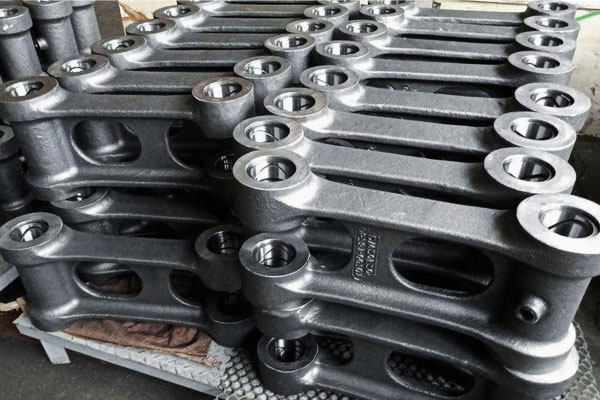
With multiple process capabilities (sandgjutning, Lost Foam Casting, resin sand casting, etc.) and a wide range of materials (kolstål, stål med låglögt, wear-resistant steel, rostfritt stål, and special alloys),
Langel provides strict quality assurance through chemical composition analysis, icke-förstörande testning (UT/RT/MT/PT), and dimensional inspection to meet ASTM, I, and ISO standards, ensuring long-term reliability under the most demanding operating conditions.
Slutsats
Heavy equipment castings embody a paradox—massive yet precise, traditional yet high-tech.
As digitalization collides with metallurgical science, these components will grow stronger, tändare, and more sustainable.
The industry’s future lies not in abandoning casting, but in elevating it through physics-based modeling and closed-loop material flows.
When the next generation of mining shovels digs deeper or wind turbines reach higher, their cast hearts will beat with algorithmic intelligence and ecological responsibility.
“We shape iron; then iron shapes the world.”
— Foundry proverb inscribed on the Gates of the American Foundry Society

